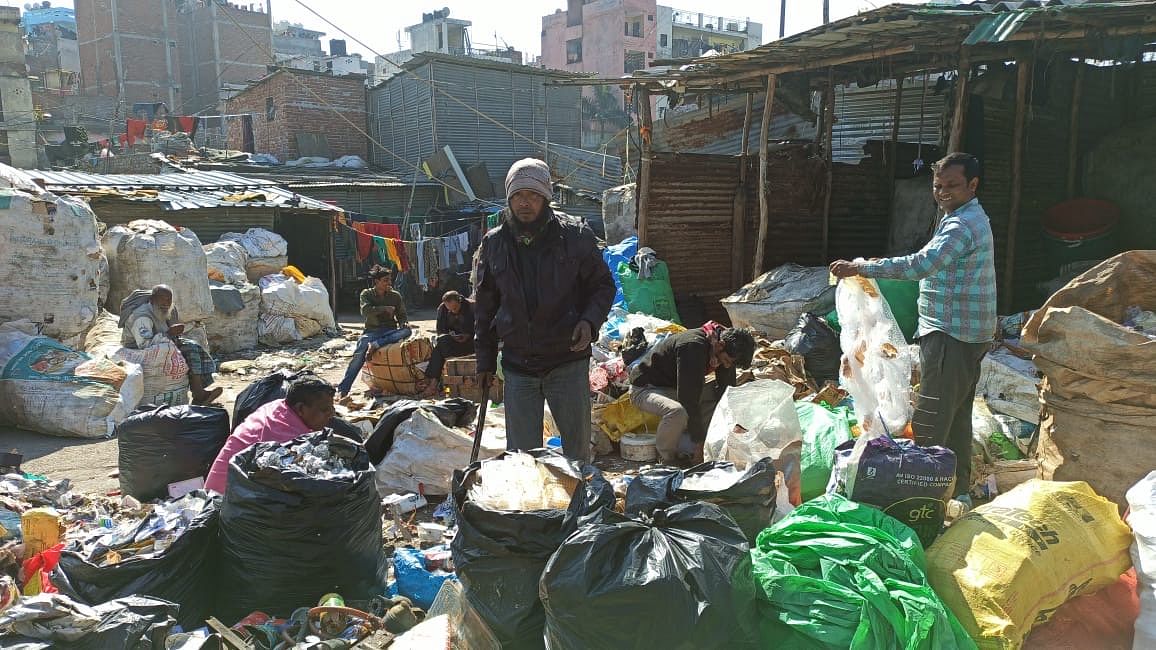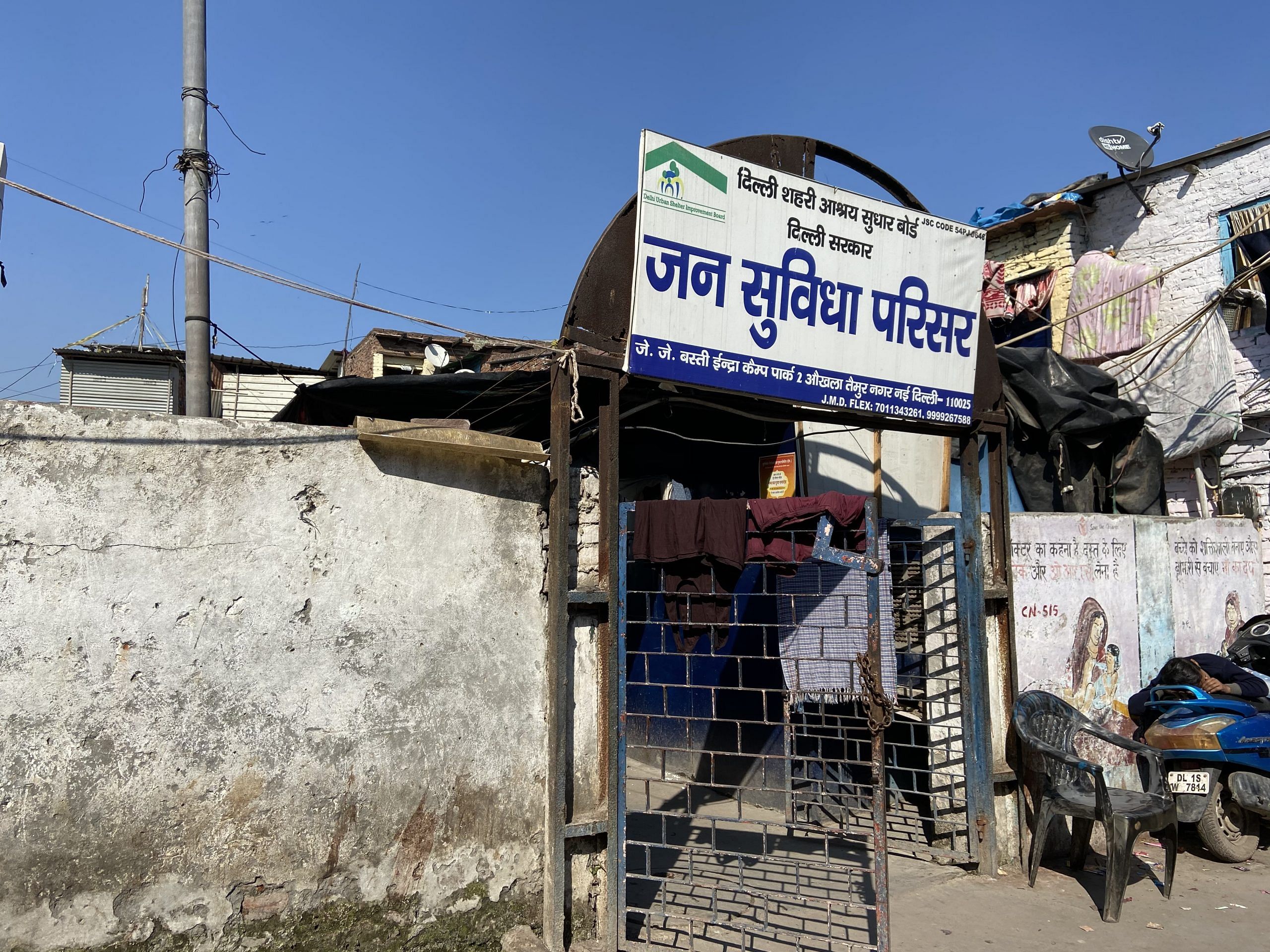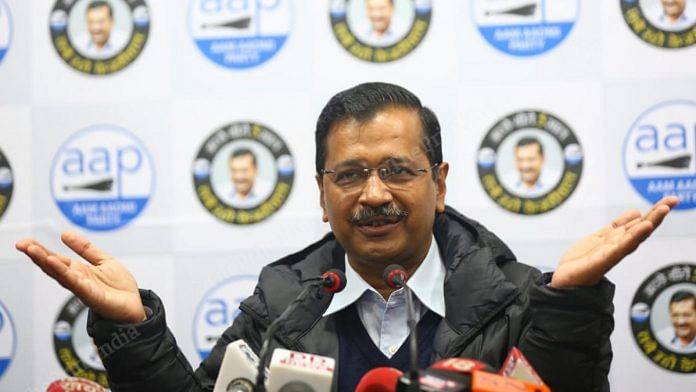New Delhi: There is one question the answer to which could determine the winner in Delhi assembly election: How many votes would Chief Minister Arvind Kejriwal’s freebies garner?
For all the hype about the Aam Aadmi Party’s governance model, it’s the freebies the party has been seeking votes for even as it has gone silent on the 8 lakh jobs it had promised in 2015 manifesto, and repeated the five-year-old promise of making Delhi pollution-free in this year’s manifesto.
ThePrint’s interactions with voters across various localities in the national capital threw up a sharp divide ahead of the 8 February polls. While a large number of slum and jhuggi-jhopri dwellers indicated the AAP’s success in winning their support, many others didn’t have kind things to say over the party’s freebie politics on electricity and water.
What the supporters say
For middle-aged Raghu Kumar, “the dignity of life” that has come with the basic amenities of “sadak (roads), paani (water), bijli (electricity)” in his colony will be the deciding factor in the Delhi elections.
Kumar has been living in a slum in north-east Delhi’s Shahdara for years now. Traditionally a Congress voter, he “experimented” with a vote to AAP in 2015, and stuck on.
Radhey Shyam, a resident of a slum in Nand Nagri, said, “Earlier we had to pay Rs 2 for using the public toilet but now it is free. This government has made everything like water, electricity and even wi-fi and CCTV free for us.
“For a person like me who barely earns Rs 100 per day, this is life-changing. I even manage to save a few bucks now.”
People expressed similar sentiments in many such settlements. No wonder, the BJP instructed all its MPs Tuesday to spend time in slums the next evening. Some MPs did go, only to distribute some party pamphlets and return, while many quietly stayed away.

According to the Economic Survey of Delhi 2018-19, the Kejriwal government had conducted a survey of slums and jhuggi-jhopri (JJ) colonies in 2014 through Delhi Urban Shelter Improvement Board and estimated around 1.7 million people resided in such settlements, accounting for about 10 per cent of the local population.
In recent years, the high pace of development in Delhi has led job-seekers to in-migrate here.
BJP leaders, however, told ThePrint that slum-JJ colony dwellers play a decisive role in 25-30 out of 70 assembly constituencies in the national capital.
Also read: Delhi’s cab, auto drivers are upset with Kejriwal, AAP. But here’s how they plan to vote
What the sceptics say
Opinions outside these dwellings, however, might not be very reassuring for the AAP. A number of people — mostly from upper and middle class — are questioning the ‘freebies’, pointing out that it is setting a bad precedent.
“While health and education should be free and of quality why should the government pay for water, power or travel? The government should focus on improving the current infrastructures, roads, building new flyovers and improving the frequency of the buses. I don’t mind paying for the facilities I use but they should use that money to make Delhi better,” said Supriya Singh, a resident of Hauz Khas.
During its tenure, the AAP government announced free electricity up to the consumption limit of 200 units and half-subsidised up to 400 units, 20,000 litres of free water per month, free health facilities at mohalla clinics, free bus and metro rides for women, et al.
Though Kejriwal government has had a dismal record in opening new schools, colleges or universities, the improvement in government school infrastructure and the publicity around it has also impressed a section of the people.
But for Manisha Priyam, associate professor at the National Institute of Education Planning and Administration, the government should rather concentrate on long-term projects.
“It is not a good practice. Bringing these short-term measures don’t show a vision to change things that would actually last,” she said.
For Manoj Singh, a chemist in Zamrudpur near Kailash Colony, the AAP government announced freebies keeping elections in mind: “All this is only because elections are here. He is clear he wants his votes right now.”
Mukesh Shukla, a resident of Saurabh Vihar in Badarpur assembly constituency, agrees. “If women can go for jobs and earn, why can’t they spend Rs 20 to travel? Are we suggesting they are not our equal? Give them safe transport rather than free transport.”

The fight over slum-dwellers
A BJP functionary said the Narendra Modi government’s central scheme ‘jahan jhuggi wahi makaan’ — promising pucca houses to people under a scheme launched just weeks before the Delhi elections — is resonating with a section of slum dwellers.
“This is one section which is still not completely with us but we are trying to make them understand what all has been done by the Centre for them. The fact that AAP is not implementing the schemes is also something we are raising,” said the leader who didn’t wish to be named.
The leader said the party had fared quite well in 2013 assembly elections and 2017 municipal elections when it got immense support from the slum dwellers in Delhi.
AAP has also acknowledged through its schemes that support from slum dwellers is crucial for them. Months before election dates were announced in December, CM Kejriwal had announced the Mukhyamantri Aawas Yojana to provide permanent residence to those living in slum clusters across the national capital.
However, there are still many slums that are in bad shape crying for attention. Take for instance, the Indira Gandhi Camp, Pahadi Number 1 located near south Delhi’s New Friends Colony’s Taimur Nagar.
Lali, a middle-aged slum dweller here, said, “They have been talking about providing us pucca makaan but so far nothing has happened. During (former CM) Sheila Dikshit’s time things had moved significantly but then she lost the elections and things are back to where it started.
“BJP leaders have promised us pucca makaan if they are voted to power and we have heard in many other states people have already got it,” she said.
Eye on unauthorised colony votes
Not limited to slum dwellers, the BJP is also banking on its move to regularise unauthorised colonies, something which PM Modi has been highlighting in his election rallies. On Wednesday, Modi talked about his government’s decision to regularise hundreds of unauthorised colonies in Delhi — a move the AAP has also claimed credit for.
“A strong and decisive government at the Centre gave ownership rights to about 40 lakh people of 1,700 unauthorised colonies in Delhi despite attempts of the Delhi government to create hindrance,” said the PM. “This could be possible because people of Delhi gave all 7 [Lok Sabha] seats to BJP.”
The move is aimed at getting the support of almost 40-50 lakh migrants who had in the past voted for the AAP. The BJP has already issued certificates to many and has promised to improve the infrastructure in these colonies.
The CAA footnote
In some of the slum clusters that have a sizeable Muslim population, the Citizenship Amendment Act (CAA) is also an election issue.
“With protests going across many places, AAP leaders have proven to be most sensible and have visited us many times. They have also assured us that they will not implement NRC,” said Rafiq, a resident of the Indira Gandhi Camp.
The country has seen massive protests over both CAA and NRC for two months. Shaheen Bagh, an area in Delhi, has become the epicentre of these protests. While AAP has supported the anti-CAA-NRC movement, it has also questioned the Modi government’s inability in clearing the protest site. The BJP focused its entire poll campaign against Shaheen Bagh and AAP’s support to it.
Also read: Talk about Manish Sisodia’s ambitions after Delhi election. For now, AAP lets his work speak




Going by the objectivity of present BJP leadership and performance of BJP Governments in several states, it can be expected to do good work in Delhi as well if they get a chance. Moreover, there will be synergy between the local bodies (corporations), state government and central government. AAP is appealing to people mostly due to freebies for immediate mutual benefit. Any long term vision is non-existent.